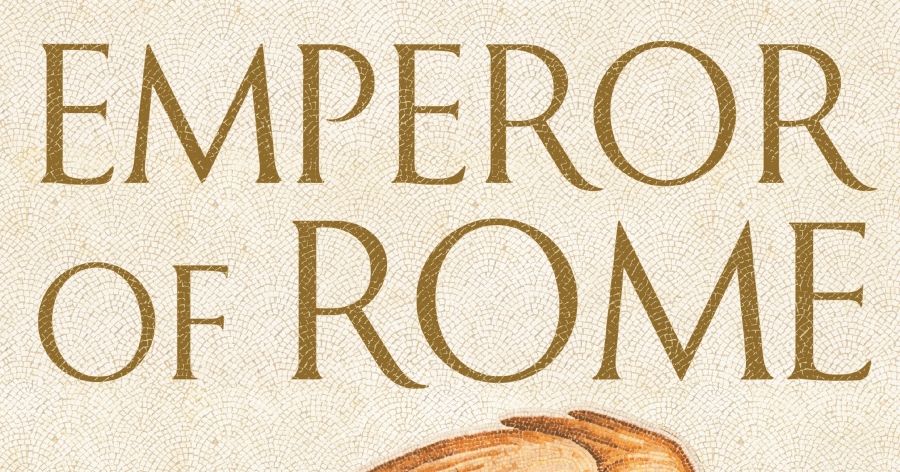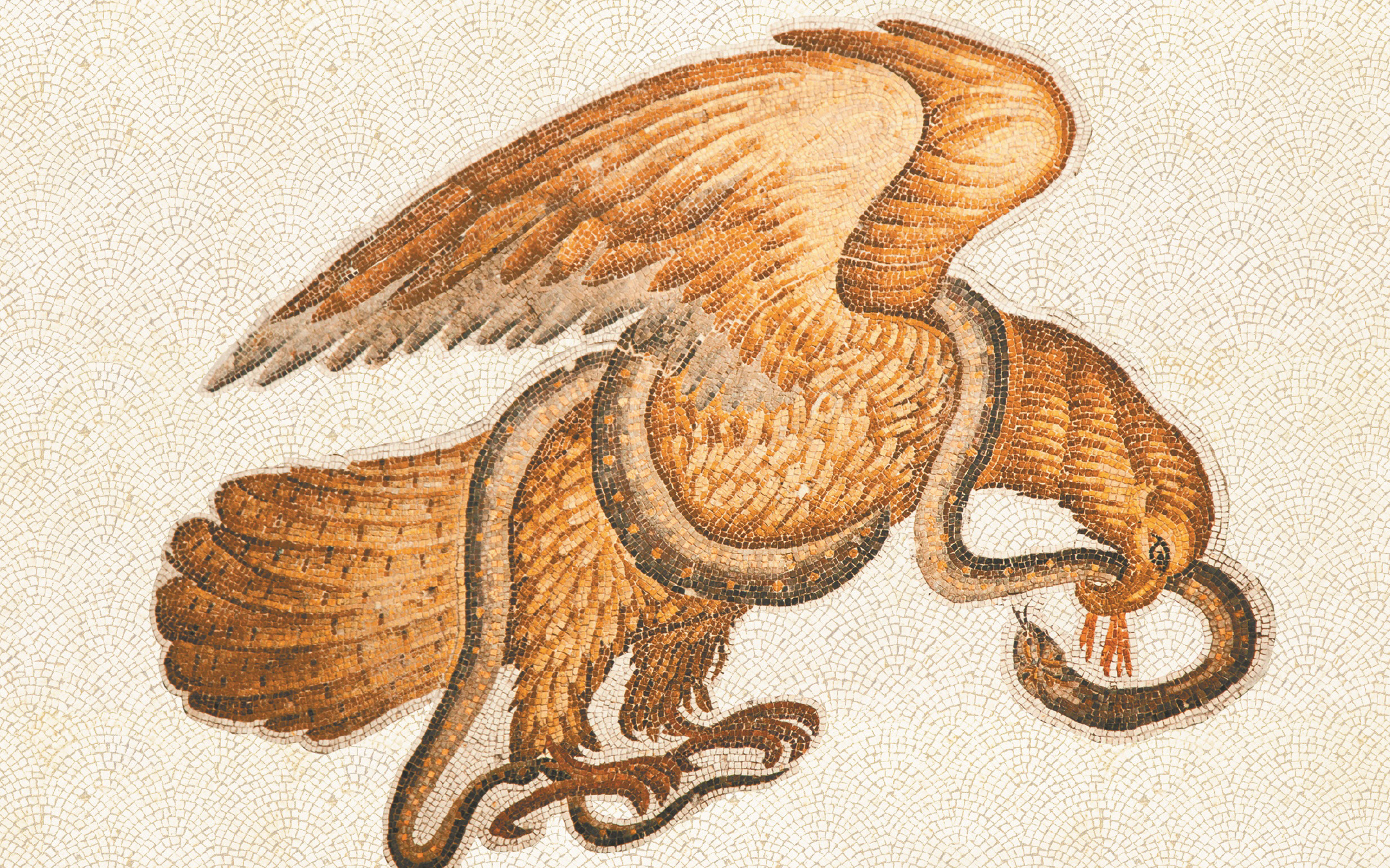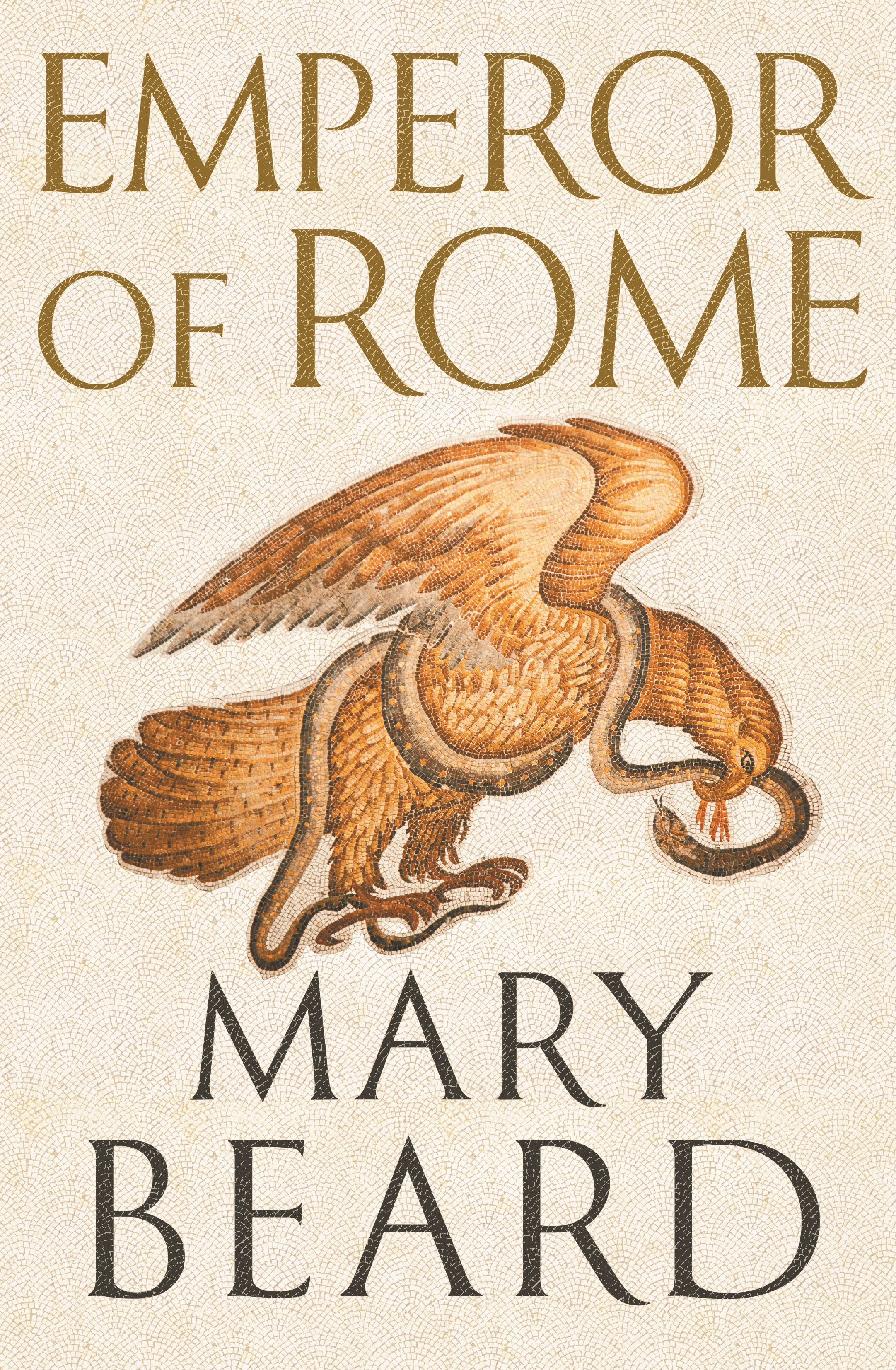
- Free Article: No
- Contents Category: History
- Review Article: Yes
- Article Title: Seeing is believing
- Article Subtitle: The sham of Roman autocracy
- Online Only: No
- Custom Highlight Text:
Those Roman emperors were a funny lot: Nero with his lyre, Caligula with his speedy horse; Elagabalus with his whoopee cushion (what japes he played on guests who came to dinner!). Mary Beard’s new book spills the tea on all the well-known eccentric autocrats who ruled the Roman world. And what a bunch of oddities they were. Hard to believe that they could have wielded so much power so effectively for so long. Yet Beard’s book is not really about the tittle-tattle. It is, above all, about the idea of Rome’s emperor: that fictitious, hypocritical, and probably accidental conceit by which Octavian/Augustus contrived to be something other than a conventional king. Beard’s answer to the apparent paradox of so many weird mediocrities wielding supreme power is that Roman autocracy was, from its first moment, an act, even a sham. ‘One-man rule’ required a huge supporting, and colluding, cast – from wives and mothers to senators, slaves, and freedmen. Beard explains how the pretence was kept up during its supposedly golden phase: from Actium in 27 bce to Alexander Severus’s murder in 235 ce. Fans of ancient history will certainly enjoy her prose.
- Featured Image (400px * 250px):

- Alt Tag (Featured Image): Miles Pattenden reviews ‘Emperor of Rome: Ruling the ancient Roman world’ by Mary Beard
- Book 1 Title: Emperor of Rome
- Book 1 Subtitle: Ruling the ancient Roman world
- Book 1 Biblio: Profile Books, $65 hb, 512 pp
- Book 1 Cover Small (400 x 600):

- Book 1 Cover (800 x 1200):

Augustus’s original imperial titles were crafted precisely to avoid connotations of monarchy or royalty. He was first citizen. As imperator, he was a military commander. As princeps (‘prince’), he was a mere leader. And yet kingly administration was at the heart of Rome’s imperial system. An emperor had to arbitrate far more urgently than he had to lead his own troops into battle. Succession was also hugely important. Thanks to Tacitus, but also to Robert Graves’s I Claudius, we have a strong sense of Rome’s imperial court as the setting for particularly bloody soap operatics. But was it – or is Rome’s reputation for death and gore misleading? Few emperors died in their beds, but the system’s remarkable stability for two hundred and fifty years ought to caution us that the bloodthirstiness was superficial rather than defining. Political stability partly came from a sobering reality that who was emperor just did not matter much to either provincial or Roman elites. So long as someone was emperor their worlds continued to turn.
Each emperor had to walk a tightrope between letting his powers ebb and overreaching them (a circumstance which could easily lead to his assassination). But, except where he specifically intervened, he was rarely more than a theoretical presence: a face on statues and on coins (which continued to bear the likeness of one of his predecessors as often as not). Trajan, the military commander, and Hadrian, the eternal wanderer, were the major exceptions. But even they exhibited their imperial majesty as effectively via their building projects at Rome and Tivoli as on the march or move. Having an imperial palace was the key to imperial status.
For Beard, as for Edward Gibbon before her, Rome’s system had one advantage over the monarchies which preceded or followed it: its succession could be determined meritocratically rather than just by birth. In her reading, and Gibbon’s, accounts of imperial eccentricities, which might be seen to belie any Panglossian interpretation of the system’s efficiency, were often calculated or even just fabricated attacks by opponents. But were they? We can hardly know. Beard seeks to emphasise just how much information we have about imperial Roman lives. Yet to this historian of a later period of Italian history the opposite seems painfully true. Almost every statement in each ancient source can be read both literally and allegorically. How are we to know where the balance lies? Ancient history comes across as a giant puzzle of interpretative literary criticism. In this, it differs from how, say, Tudor historians approach Henry VIII’s court. Later historians mine text and archives to come up with their own theories about the king’s personality. Beard seems unable to do much more than set out why a small band of near-contemporary sources discuss an emperor’s character as they do.
Did the emperor’s ability to choose an adopted son – the typical succession practice – really make much difference anyway? One reason medieval historians think most later monarchies reverted to succession by primogeniture was that it was just less costly. Everyone knew where they stood when the succession was decided by law. Beard does not rebut, nor even engage, this observation. Indeed, her take on imperial Rome, though as lively and accessible as any, is short on the sort of meaningful and detailed diachronic comparison that would elevate this to compelling reading (it is also short on change over time: did the system really function much the same under Alexander Severus as under Augustus?).
Beard does include some quirky and not uninteresting observations that relate imperial Roman practice to Elizabeth II or the court at Versailles. But what irked was this: she seems to assume the reader will have no understanding of, and perhaps even little preconception of, monarchy. Everything somehow needs explaining from first principles. Rome becomes a case sui generis. This matters because it occludes a further important paradox of imperial Roman history of which this book could have made so much more. Everything we know – or think we know – about imperial Rome has, in fact, always been mediated through constant discussion about it over the 1,500-plus years since the Western Empire’s fall. Almost every medieval prince (and republican) referenced Rome and made her system of government his legitimator or ideal (think not only of the Byzantine emperor or the Germanic Holy Roman one, but even of good old Henry VIII grandiloquently declaring in his Act of Restraint in Appeals that ‘this realm of England is an empire’). Political theorists and historians like Machiavelli and Gibbon were no better – for them, Rome, even more than Athens or Jerusalem, was also always the key benchmark. These post-Roman observers of Rome surely merit a greater part in Rome’s imperial story than they get here. After all, it is their Rome which comes down to us as surely as does that of Augustus.


Comments powered by CComment